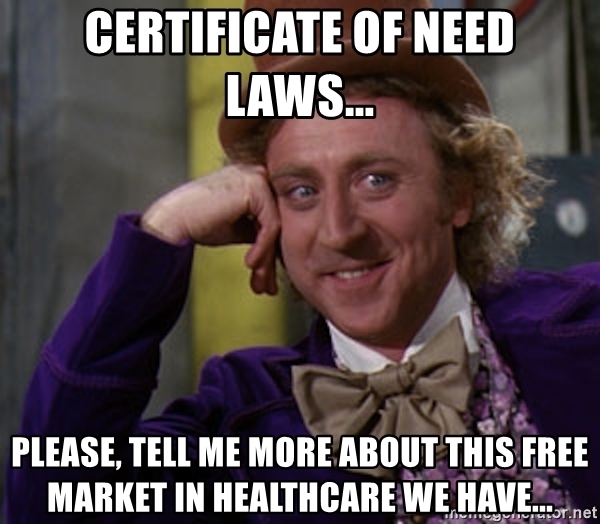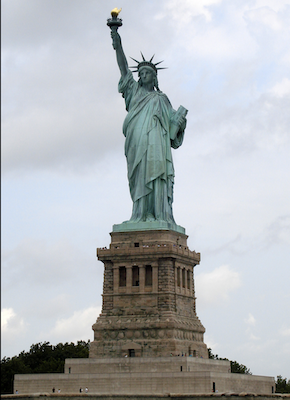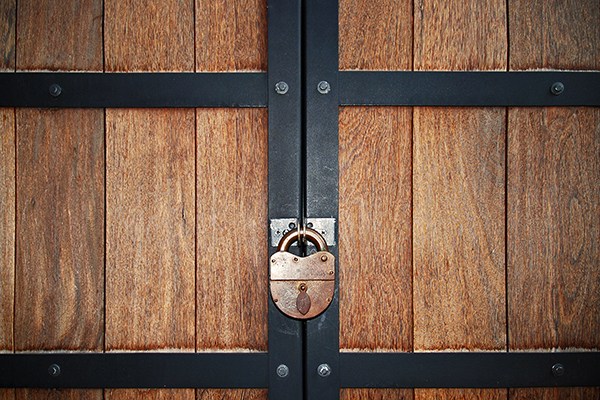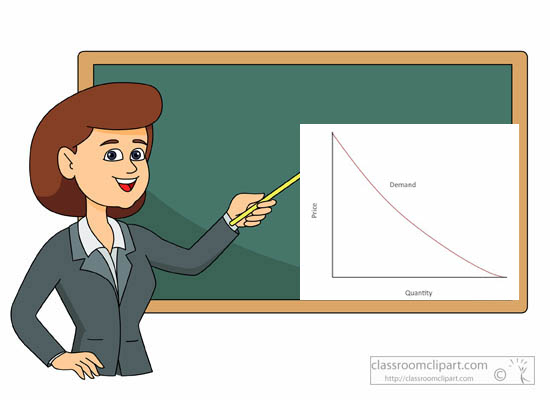The fallout from the recent Capitol Hill ((a) uprising, (b) insurrection, (c) coup, (d) rebellion, (e) mostly peaceful protest, (f) all of the above) has ignited a movement of national secession – not of political boundaries (yet) but rather electronic and economic ones. The opening salvo was Twitter’s summary ejection of Trump from their platform. Soon after the right-of-center Twitter competitor Parler was drummed out of the Google Play store, the Apple App store, and it’s entire network infrastructure mothballed by Amazon on their AWS network. They were initially blamed for facilitating communication between those invading Capitol Hill however it turns out Facebook and other platforms were instrumental towards those ends – I’m sure it was only an innocent mistake that Parler was singled out for execution.
Orwell’s fictional ‘thoughtcrime’ is now real. Those opposing the corporate press’s narrative are no longer merely ‘wrong,’ they are ‘deniers’ and as such a threat to ‘safety.’ But the punishment for ‘wrongthink’ comes not from the state, but instead private actors. The corporate media are shameless in their hypocrisy. Private companies may be forced to bake gay wedding cakes or remain closed during a state imposed ‘lockdown’ but simultaneously have every right to refuse service or employment to Trump supporters. The putative rationalization for such behavior is naturally not ‘censorship’ but rather ‘safety.’ It then becomes a trivial matter to justify any actions if the stated goal is safety. This is how their ideological goals are smuggled in – via the rubric of public safety. Had these platforms responded similarly to the widespread and pervasive violence seen last summer (or when left-wing protestors invaded the Wisconsin state capitol building in 2011) then perhaps this behavior might have been viewed as less pretext and more principle. Fortunately Twitter can’t literally imprison us (yet). The only ‘justice’ they can mete out is one of electronic excommunication with all the due process of a drumhead court.
“The Net interprets censorship as damage and routes around it”.
John Gilmore
Today’s electronic secession differs from the previous one however. In 1861 it was the wife who tried to leave but was beaten into submission by her jealous husband. Today the wife is kicking the husband out of the house; she packed his bags and put them on the front porch. The left has wanted this divorce for years and now they have their excuse. But rather than bemoan this perhaps we should celebrate it. The first step in acknowledging this farce of a “united” states is to recognize there are irreconcilable differences. Yes the divorce will be difficult but achieving anything of value in life is rarely easy. In many ways this fracturing mirrors the biological reality of the world. Cell division follows a pattern of cellular growth to a point whereupon mitosis begins and the cell sets about dividing. Perhaps a country of 350 million is just a tad too big to expect ideological solidarity. Maybe we are more Balkanized than United and just as Yugoslavia split asunder so should we. Such fracturing of groups is a common process. It is the primary reason there exists hundreds of differing Christian denominations. Within every group disagreements will arise and swell to the point of becoming irreconcilable. The groups then go their own separate and peaceful ways. The irony is that these amicable divisions were possible only because the founding fathers had the wisdom to not bind any single denomination to the state. It is now time for a separation of government and state so that many and varied governments may form freely and peacefully and the people may form political unions of their choosing and not one imposed by their neighbor. There is no principled reason to force people into a political union at this point other than pure sentimentality or nostalgia.
This electronic ostracism will inspire a renaissance of new technology, new platforms, and new ways of interacting with one another that will render the current ideological and political subjugation impotent. Impossible? Just recall that no one could have predicted the growing irrelevancy of those former gatekeepers of the pre-Internet world (e.g. publishing, music, shopping, news media, entertainment, etc.). It is only when the powerful abuse their position that they lay the seeds of their own demise.









